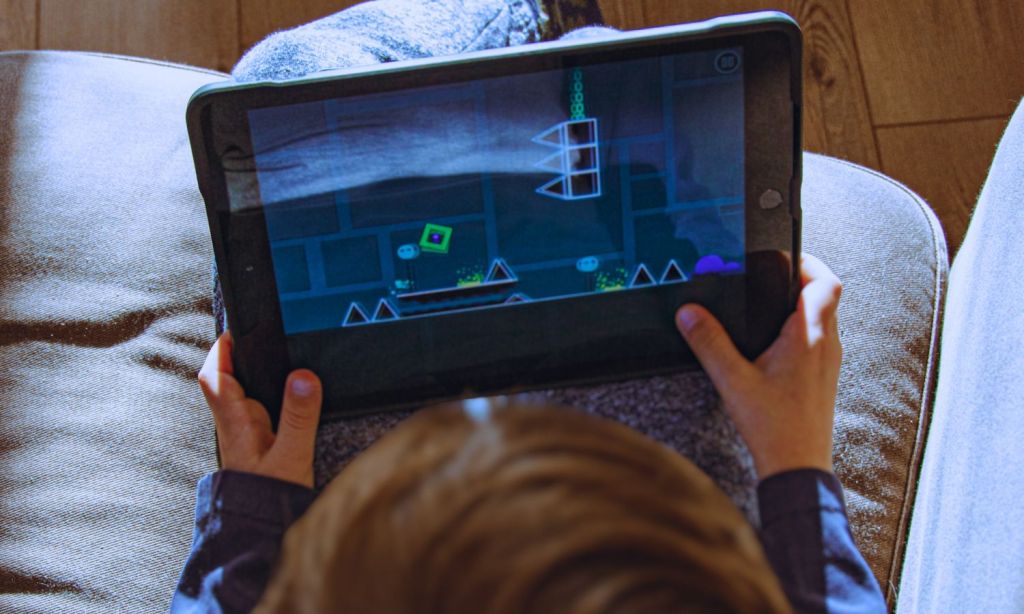In one of the most wide-ranging investigations ever conducted on the subject, new evidence has shown that screen use has a measurable effect on brain development and function which can be detected years later.
Scientists from the Education University of Hong Kong, Shanghai Normal University, and Macquarie University tracked the early childhood brain development of more than 30,000 participants over a 23-year period.
Using neuroimaging techniques, what they have revealed is that extensive screen time leads to changes in the prefrontal cortex of the brain which is the centre of executive functions like working memory, planning, and response.
They’ve also shown that screen time impacts the parietal lobe, the part of the brain that helps to process touch, pressure, heat, cold, and pain, as well as the temporal lobe controlling language, hearing, and memory. The occipital lobe, which helps us interpret visual information, is also impacted.
“It should be recognized by both educators and caregivers that children’s cognitive development may be influenced by their digital experiences,” said the study’s corresponding author, Chair Professor Hui Li.
However, the news may not be as concerning as it sounds. What the researchers have suggested is that limits on screen time may not be the solution as the effects are both positive and negative. Instead, they want policymakers to help parents steer their children towards content that promotes healthy brain development.
“Limiting their screen time is an effective but confronting way, and more innovative, friendly, and practical strategies could be developed and implemented,” Li said.
“Those in policymaking positions should supply suitable guidance, involvement and backing for children’s digital use.”
The researchers set out to examine the impact of screen time on early brain development. Time before the age of eight is when most of our visual development is forming while time before the age of 12 is crucial for language acquisition.
Through a synthesis of studies published between 200 and 2023 on the effects of digital screens on child development, the researchers concluded that digital experiences in early childhood have a “significant impact” on the shape of a developing brain and its functioning.
While it’s not all bad, the negative does outweigh the positive, they say. Screen time in early childhood seems to limit attention span, executive function, inhibition control, and cognitive processing. There is also a suggestion that it inhibits language learning.
Tablet usage in young children was found to have the worst impact on their development. Video gaming and high internet usage were also found to be problematic.
On the positive side, video games were found to increase cognitive demand, potentially improving children’s problem-solving abilities. Learning capacity and focus were also seen to increase with screen use in a few of the studies.
The impact of screens on children and the long-term effects that they can have is still relatively new territory. However, there is a growing body of evidence to suggest that what you watch, particularly when you’re younger, can have life-long consequences.
Most state and territory governments follow national guidelines in recommending limits on screen time for children and there are a number of government programmes advising parents on how they can encourage healthy screen time. However, awareness of the programmes isn’t universal, and there are calls for more regulations.
The Australian Parents Council recommends children under two have no screen time at all, including watching TV. Children two to five should have less than an hour per day, while children five to 17 should have less than two hours per day.
Earlier this month, the New South Wales government announced it would be spending $2.5 million on a three-year research project into the effects of “problematic” screen time on young people. The move came after the state banned the use of mobile phones in school.
Lead author of the study, Dr Dandan Wu, has argued that the recent findings implore governments to go further.
“It is imperative for policymakers to develop and execute policies grounded in empirical evidence to safeguard and enhance brain development in children as they navigate the digital era.
“Foremost, it should be recognized by both educators and caregivers that children’s cognitive development may be influenced by their digital experiences. As such, they should supply suitable guidance, involvement, and backing for children’s digital use”.
Related: Welp, There It Is: Aussie Researchers Find Excessive Screen Use Makes You Dumber
Related: This Social Media Company Sucks Up the Most of Your Private Data
Read more stories from The Latch and subscribe to our email newsletter.







